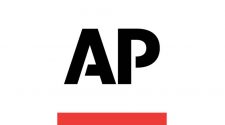COVID consequences result in suspension of numerous merger-related state requirements
JOHNSON CITY, Tenn. (WJHL) – While Ballad Health clinicians have battled the stress of treating COVID-19 patients, the health system’s administrators have watched revenues tumble, CEO Alan Levine said Friday.
A temporary shutdown of elective surgeries, and a continued reluctance of many people who fear the pandemic to seek medical care, have created what Levine called a “breathtaking” impact.
“The financial impact of the volatility in volumes combined with these other factors, these other (challenges) that rural health systems are facing, are creating devastating headwinds,” Levine said.
And while Ballad’s board hasn’t even passed a budget for the year that started July 1, projections are even uglier this year.
“Without the federal funding (in fiscal 2020) we would have had a sizeable operating loss, and we think that those dynamics continue into this current fiscal year,” Levine said.
$82 million in federal CARES Act grant funding more than made up for the financial losses in the fiscal year that ended June 30, turning what would have been a $38.5 million operating loss into an $18.9 million gain.
That compares to Ballad’s $36.4 million operating gain in fiscal 2019. Even that 1.6 percent margin pre-COVID was a thin one that Levine said is about the best rural systems can hope for without some changes to payment models, but it was based on volumes and numbers a far sight better than 2020’s.
The numbers that drive the numbers
The pandemic’s effects were about two weeks in when Ballad’s fourth quarter started April 1. That quarter ended with patient revenue down a whopping $139 million, or 27 percent, from the fourth quarter of 2019.
The drivers for that are easy to see:
- Surgeries down 40 percent, from 18,285 to 10,930.
- Outpatient visits down 35 percent, from 427,628 to 277,146.
- Hospital admissions down 23 percent, from 30,437 to 23,515.
The first six weeks of the 2021 year showed continued lower volumes compared to last summer, Levine said. And while Ballad will eagerly get in line for any additional federal relief, he doesn’t expect anything near the dollop of aid that came in the spring.
“I’d say it’s likely that we will experience another operating loss in the coming year,” Levine said.
Ballad’s board is looking at several prospective budget scenarios. None shows an operating gain for fiscal 2021, but Levine said the system plans to minimize cuts and potential layoffs — 300 people remain furloughed right now — as opposed to insisting on an operating margin or a smaller loss.
“We know that this is going to be a difficult financial year. We’ve got to get through COVID, we’ve got to determine after COVID comes and goes, what does the new normal look like, and then from there we can make some assumptions and projections and … reset our expectations.”
Since so many of those factors are out of Ballad’s control, Levine said, he’s trying to keep people focused on patient care.
“We’ll get through this, we’ll figure out what the new normal’s going to look like and we will emerge from it very strong, but right now there’s a lot of uncertainty.
“If we do the one thing that we’re expected to do – take care of people – the rest will take care of itself.”
A little flexibility from Nashville, Richmond — just for now?
One effect of COVID-19 has been an easing up on the requirements Tennessee and Virginia placed on Ballad when the states allowed the merger of Mountain States Health Alliance and Wellmont Health System.
Those are outlined in the Certificate of Public Advantage (COPA) in Tennessee and the Cooperative Agreement in Virginia, and were required for approval of the merger because it was anti-competitive.
The states had to grant “state action immunity” from antitrust action the federal government otherwise could have (and likely would have) taken to block the merger.
But one piece of the agreements allows for suspension of some requirements — requirements that are designed to mitigate the drawbacks of what is essentially an inpatient monopoly — in the event of “material adverse events” or “force majeure.”
COVID certainly filled the bill for that, and in late March the Tennessee Department of Health suspended quite a few provisions of the COPA’s “Terms and Conditions.”
Those include the system’s monetary commitments to enhancing mental health, children’s health and several other areas of population health — though the overall 10-year commitment is unchanged.
The suspensions also allow Ballad to delete or repurpose service lines without prior approval, as it did by eliminating the cardiac catheterization lab in Greeneville and consolidating OB services in Kingsport.
They also suspend other monetary commitments, including capital expenditures, employee pay and benefits equalization and employee retention, termination and severance.
Finally, the suspensions allow Ballad to challenge other providers’ applications for “certificate of need” to bring competing services to a community. Ballad successfully challenged a company’s effort to establish a new competing service in Greeneville, something Levine said would allow that group to “cherry pick” the better-reimbursing patients.
But Ballad’s leader insisted the system is still in close communication with the states as they take any actions that would have required preapproval.
“We still went to them and told them we’re going to do these things, we gave them the opportunity to tell us if they had concerns,” Levine said.
“So I think the spirit of compliance is very strong in large part because the states have been so willing to recognize the flexibility that we need.”
He said the suspension of some conditions doesn’t mean the state has abnegated its required “active supervision.”
Such supervision is a must for state action immunity to pass a “two-pronged test” allowing for immunity from antitrust enforcement. The other prong is the ability to show the benefits of the merger outweigh any disadvantages created by the absence of competition.
In Tennessee, the suspensions will remain until after Gov. Bill Lee’s emergency order is lifted and for “a reasonable period of recovery thereafter,” Levine said. “I think it’s really going to depend on which elements of the COPA were suspended as to when they are put back in place.”
Levine acknowledged that Ballad could lobby for permanent changes to some of the conditions at which the system has chafed, once the “new normal” is established.
He said without significant changes to how rural hospitals and health systems get reimbursed, some of those requirements could make it difficult for Ballad to sustain its operations and meet all its financial commitments to the community.
“When you look at the financials and you look at where we’re at it’s clear to everyone that there’s going to have to be a discussion about, ‘ok, what does it look like going forward,’” Levine said.
“And none of us can answer that right now because we’re still dealing with the pandemic, but we don’t have any pre-conceived ideas about what it (potential changes to the COPA and Cooperative Agreement) should be.
“Right now we’re appreciative of the suspension and we’re continuing to recognize the ongoing active supervision that’s taking place in both states.”














